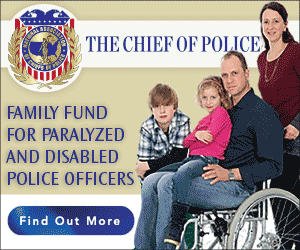We all have an ego, some more pronounced than others. Ego can have a negative impact on not only daily operation of walking the corners but also on how we lead others and ourselves. The ego, according to Freud, is “that portion of the human personality which is experienced as the ‘self’ or ‘I’ and is in contact with the external world through perception. It is said to be the part that remembers, evaluates, plans, and in other ways is responsive to and acts in the surrounding physical and social world.”
The ego can manifest in many forms. Ego can manifest a self-pride and reliance in new equipment, gear or uniform. Sometimes ego manifests from position, rank or experience. While gear and experience are great tools and teachers, the job should never be solely founded and focused on these externals. This is where we can get in to trouble. Any “feeling” of power, control or self confidence derived solely from self-reliance in gear, position and experience can be the exact cause of the problem when it comes to interactions with other people.
A good example of this is a new graduate from a school or training with a false expectation of how situations can unfold. As Neil deGrasse Tyson puts it, “Knowing enough to think you are right, but not knowing enough to know you are wrong.” Everyone has and will make a bad call not due to experiential learning but rather not recognizing we do not yet possess the right experience or we do not know all the right things.
More importantly, we may never have enough experience and may never know enough of the right things to effectively adjudicate all of life’s events. Still, ego allows us to believe otherwise. We call this a “superman” effect — feeling like you are ready to charge forward without completely being aware and prepared of all of the dangers that life presents.
So, what can we do about it? How do we drive our egos through confidence, whether self-grandiose or earned, to real confidence in competence and beyond into leadership? How do we get beyond ego in our leadership talks and passing on lessons learned?
The hard first step, for the “egomaniacs” is to commit to being open and confident in admitting our own flaws. Resist the urge to set the magazine down and stay with me on this. Confidence is confidence no matter what. Confidence is not only when you are the shining leader but also when we own our mistakes, and yes, even when asking for forgiveness.
When we get with our peers, we can only improve by identifying our shortcomings to one another and then working on them. Iron sharpens iron. When you go to the range, it is good to know who the best shooter is but equally as valuable to know who the worst shooter is. Calm down, I know. This would imply that someone in your squad or department is not cutting it — well, they are there whether we want to admit it or not, and the worst thing we can do as leaders is put our heads in the sand and pretend like they don’t exist.
When you go to the range, observe those who have the “coolest” gear or latest and greatest equipment. Sure, it looks neat but what is that person’s skill level without all those fun toys? What do you do when your EOTECH goes down? How well can you protect your partner then? We must be willing to look ourselves in the mirror and take a serious stance on ourselves. This is a cornerstone of a great leader-self assessment, correction and ownership.
The challenge on this approach is embarrassment and judgment by our peers and colleagues. It is a very real concern, especially in departments that do not get leadership support or worse, thrown under the bus to move someone’s career forward. This is where John Boyd’s philosophy is absolutely right on. “Do you want to be someone or do something?”
Ego drives wanting to be someone. To do something requires more than ego. We have to drive past ego to improve ourselves, our teammates and our departments and communities — to do something. Next time we do a debrief or review training, start with the leader pointing out their missteps. Let the leader explain how he or she will improve and then open it up to the rest of the team.
It is hard to get thrown under the bus when we are diligently focused on being better. This is going to feel strange at first, but then something will shift — the self-assessment and self-correction will begin. Even your junior teammates will begin to critically think about strategic improvement and growth. Ask yourself, do we need our folks on the street, with a false sense of their ability going in to harm’s way, set up to make a bad call? Or do we want to have those tough conversations and teachable moments and for those from the bottom to the top to be ready to make the necessary corrections to be better?
I recall in my own career as a young lion, confident and eager to take on the world having to be humbled by those who went before me, those who mentored me, tempered me and prepared me for the reality of the real world. They taught me to recognize my ego and drive past it to confidence and competence. To those leaders, my successes are your successes. Thank you.
It is not the gun, the job, the title, or the equipment that makes us professionals — it’s the commitment to being better for ourselves and our teammates.




